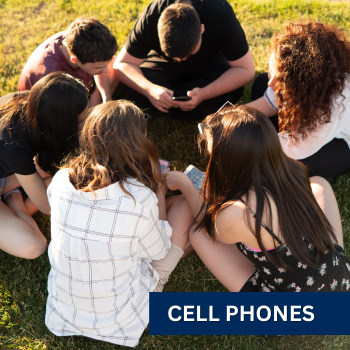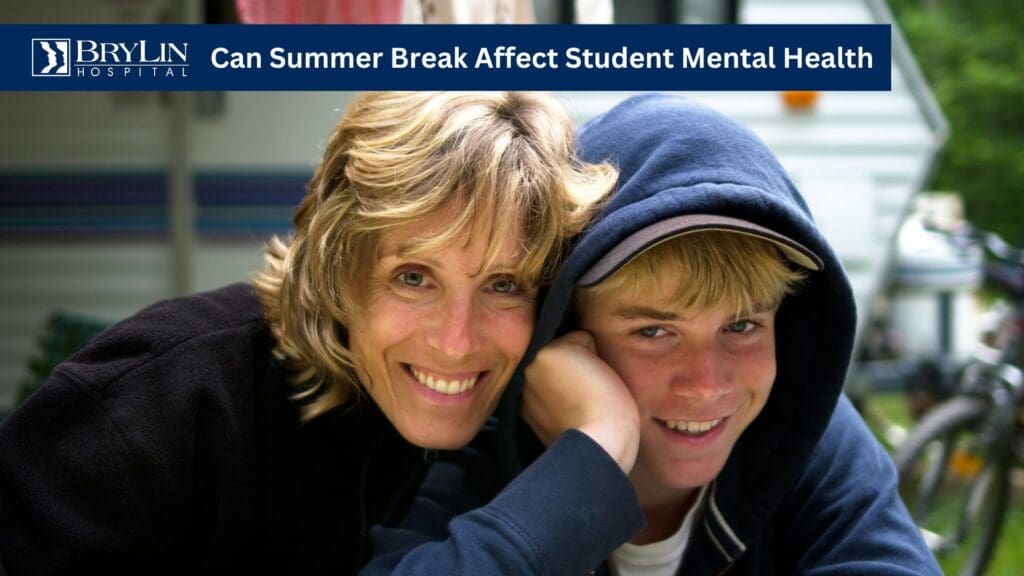How Summer Break Can Affect Student Mental Health and How Parents Can Support Them
Summer vacation is often envisioned as a joyful time, filled with the celebration of the last day of school and family fun. However, can Summer break affect student mental health? For many students, summer break is a period that can bring significant mental health and socioeconomic challenges. While it can be a welcome rest for some, it often comes with a mixed bag of emotions and difficulties.
The Impact of Summer Break on Student Mental Health
Several factors contribute to the decline in student mental health during the summer. These factors disproportionately affect students from historically marginalized communities, who face resource disparities not only in summer but throughout the year.
Lack of Structure

The abrupt absence of a structured routine can adversely impact mental health, especially for those without access to summer programs like camps or extracurricular activities. This unstructured time can lead to boredom, cell phone addiction, and understimulation, potentially resulting in mental health issues such as depression or unhealthy coping mechanisms like substance use. Moreover, unstructured time often means unsupervised time, increasing the risk of engaging in risky behaviors.
Loss of Mental Health Resources
Many students depend on school-based mental health services, such as regular sessions with counselors or social workers, which become unavailable during the summer. For families facing significant barriers, maintaining the same level of mental health support outside of school is unrealistic. Consequently, students may lose access to essential mental health resources during the summer break.
Exposure to Trauma
For some students, summer means spending more time in unsafe environments. School often provides a safe haven, offering a respite from violent households or communities. During the summer, these students might be subjected to prolonged exposure to these unhealthy environments, causing traumatic stress. Additionally, summer months often see an increase in crime, which can be traumatic for students in certain communities. This underscores the importance of trauma-informed learning upon their return to school in the fall.
Food Insecurity
Many families rely on school meal programs to provide healthy breakfasts and lunches for their children. Without this support during the summer, students may face food insecurity and hunger.
Loneliness and Isolation
School is not just a place for academic learning; it is also where students fulfill their social needs. Even in rural or dispersed areas, students can see friends and trusted adults at school. Social connections are crucial for mental health, helping students build resilience against trauma. During the summer, many students lose this social support, leading to feelings of loneliness and isolation.
How Parents Can Support Their Children During Summer Break
Establish a Routine
Maintaining a daily routine can provide the structure that students miss during summer break. Parents can set regular times for activities such as reading, playing, and family meals. Enrolling children in summer camps or programs can also offer structured activities and social interaction.
Ensure Access to Mental Health Resources
Parents should proactively seek out mental health resources for their children during the summer. This might include scheduling regular check-ins with a counselor or finding community programs that offer mental health support.
 Create a Safe Environment
Create a Safe Environment
Creating a safe and supportive home environment is crucial. Parents should be aware of the potential for increased stress and trauma during the summer and provide a stable and nurturing atmosphere. If necessary, seek help from community resources or support groups.
Address Food Insecurity
Parents facing food insecurity can look for community resources such as food banks or summer meal programs. Many organizations provide free meals for children during the summer months.
Foster Social Connections
Encouraging social interaction is vital. Parents can arrange playdates, join community activities, or encourage their children to participate in local clubs or sports. Staying connected with friends and peers can help alleviate feelings of loneliness.
While summer break presents challenges for many students, parents can play a pivotal role in supporting their mental health. By providing structure, ensuring access to resources, creating a safe environment, addressing food insecurity, and fostering social connections, parents can help their children navigate the summer months more smoothly and prepare for a successful return to school.
Seeking Professional Help
While these strategies can help mitigate some of the challenges students face during summer break, there are times when professional help is necessary. There are many outpatient treatment options available. However, if your child or adolescent is in crisis, or showing signs of severe mental health issues, do not hesitate to seek help from a mental health professional.
BryLin Hospital offers crisis mental health care services for children, adolescents and adults. Their experienced staff can provide the support and treatment necessary to address a wide range of mental health concerns. Seeking professional help can make a significant difference in your child’s well-being, ensuring they receive the care they need to navigate through their challenges effectively.
Summer break presents challenges for many students, but with the right support and resources, parents can play a pivotal role in supporting their mental health. By providing structure, ensuring access to resources, creating a safe environment, addressing food insecurity, fostering social connections, and seeking professional help when needed, parents can help their children navigate the summer months more smoothly and prepare for a successful return to school.



Comments are closed